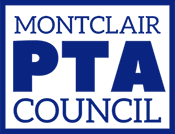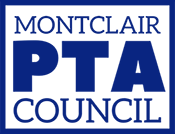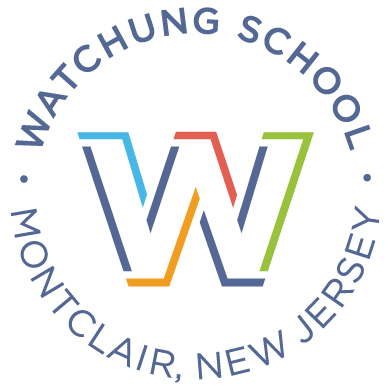Good evening. On behalf of the Montclair PTA Council, we would like to thank the Board of School Estimates for its service and thoughtfulness in reviewing the proposed budget.
PTAC recognizes that this proposed budget has been a painful one to contemplate, as the targeted $3.7 million for reductions in staff salaries will likely affect all schools and departments. Ideally, the district’s analysis to determine staffing needs would have been completed in advance of the Board of Education’s deadline to pass a balanced budget. And that would have permitted the BOE, BOSE and key stakeholders, including staff, parents and taxpayers, the opportunity to assess and offer input on the proposed cuts in greater detail.
That said, we recognize that the district has a new Superintendent, a new Assistant Superintendent for Equity, Curriculum and Instruction, a new Personnel Director and new and/or interim principals at multiple schools including Montclair High School. In addition, the district’s already lean administrative team has been swamped from the outset by the COVID-19 pandemic, the facility needs across the district, and battles over the launch of the district’s hybrid learning plan. To us it is understandable why the start of the analysis was delayed.
We do not believe, as some have recently suggested, that this year’s budget gap or the budget gaps that we’ve seen over the past several years are indicative of mismanagement in the district’s budget planning, management or execution. The district is at the mercy of the state’s statutory 2% cap on annual increases to the district’s tax levy funding, along with generally flat state and federal aid levels. Further, the district faces annually increasing costs for things such as health insurance, out-of-district tuitions, and transportation. All of these factors are largely if not entirely outside the district’s control, and inevitably result in material budget gaps, as demonstrated during the last several years.
We’ve had previous budgets that have drastically reduced administration and other-than- personnel costs, but there is only so much blood that can be drawn from that stone. We believe that regulatory reform is required at the state level if we are to have any hope of avoiding painful cuts to staffing and programming on an annual basis. We do advocate for regulatory reforms and urge the Board of Education to do the same, because our students should not be subject to ever decreasing educational resources and programming for the sake of property tax relief while there seems to be no regulatory constraints to stem increases in the district’s mandated and necessary costs = like health insurance.
Even without this regulatory squeeze, the district owes it to the taxpayers to conduct a detailed annual review of staffing and programming as part of the budget process. The review could for example, identify where teachers may be assigned fewer teaching periods than were negotiated in the Collective Bargaining Agreement, or identify where classes are under-enrolled and could be combined. In some cases, some staff roles could and possibly should be assigned to multiple schools to drive efficiencies. We might reduce the number of paraprofessionals while still meeting the needs of students with IEPs by making sure that mandated shared paras are in fact shared by multiple students, rather than being assigned as de facto 1:1 paras.
That sort of disciplined analysis is not a war on staff but is completely appropriate and responsible, and we trust in the administration to conduct their analysis in a good faith effort to minimize the impact of any cuts on students.
We recognize that the district is passing this budget without adequate information about federal COVID-reflief grant funding and without clear and complete guidance on how the funding may be used. We acknowledge that the district cannot allocate federal grant funding that has yet to be awarded, but we endorse the district administration’s plan to identify expenditures that can and should be shifted to any grant funding received, especially to address harms brought on by the COVID-19 pandemic.
We are hopeful that shifting the budget will mean fewer staff cuts, such that any remaining cuts are related to efficiency opportunities, and so that we don’t have to cut to critical instructional, social and emotional services for our children. At the same time, we caution against using COVID-related funding as a Band-Aid to fund recurring expenditures, which would only set up an even steeper budget gap in subsequent budget years.
This year’s budget gap and potential staffing reduction is large but not unprecedented. We addressed a large budget gap in the 2011-2012, School Year and in 2015-2016, and now in almost every school year since Montclair has started bumping up against the statutory 2% tax levy cap. We ask that you look at the recurring budget shortfalls against a parallel set of recurrent problems – and that’s our students performance with regard to the opportunity gap and equity. We wonder if managing the budget over the last several years with a focus on maintaining staffing is at the expense of the support our teachers need to overcome these ever present challenges. Especially at this juncture, when our students will be returning to school after over a year of remote instruction, we should be preparing our teachers and giving them the tools to be able to help our students recover – socially and academically. Our teachers deserve professional development and expert training to be able to address our students COVID-related issues, for their development and for their careers. Also to be able to tackle problems that have plagued our district for decades – like the opportunity gap and equity issues. We need reading specialists, and also math specialists and other subject leaders. Our teachers deserve to be mentored by master teachers. If our schools’ budget is truly reflective of our values we need to have the funds available and be willing to pay to support our teachers.
We urge all of the district’s stakeholders to work together, understanding that difficult choices will have to be made, and honoring everyone’s hard work and good faith to make such choices wisely.











